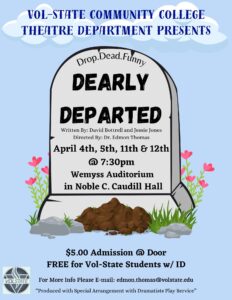To life, liberty and the pursuit of happiness which Thomas Jefferson asserted are the unalienable rights of every man we would like to humbly add education.
Educators have been revered since the time of Plato, Socrates, and Jesus and those who impart their knowledge and wisdom to others are certainly following one of mankind’s noblest callings.
And while the idea of gathering teachers in one place where they can interact with their students is undoubtedly a good one, that idea begins to falter once the students stop being viewed as students and begin to be viewed instead as income streams for what has become the big business of education.
We have mentioned in this space before, the unregulated money grab that is the educational publishing industry, but the visit to the Volunteer State Community College campus by the Southern Association of Colleges and Schools (SACS) opened our eyes to another such scam which will be perpetrated on future generations of Vol State students.
Apparently, SACS has declared that student retention is an issue (yes, if the students leave school, the school no longer receives grant, loan or personal monies for tuition, books and fees) and thus has decreed that schools will take actions to encourage students to stay enrolled.
Vol State will be implementing two courses which all incoming students will be required to take (oh and by the way, pay for too).
Designated FYEX-1030 and FYEX-1030, the courses will, according to Vol State’s Quality Enhancement Plan (QEP),” provide students with the tools they need to be successful in the classroom and beyond.”
This is the sheerest form of gobbledy-gook.
At what point did it become the college’s responsibility to teach rudimentary skills such as note taking, studying, and even the three Rs (reading, writing and arithmetic) to incoming students.?
In fact, it is the responsibility of high schools (or even earlier) to prepare students for higher education.
And while encouraging students to want to go to college is certainly within the purview of community and regular colleges (remember that crop of money to be harvested from each pupil?) the fact is that not everyone is cut out to attend college.
Yes, the world needs doctors and lawyers, but it also needs plumbers, electricians and construction workers (and in greater numbers than it does the doctors and lawyers) too.
It was suggested earlier that education should be made one of those unalienable rights which Jefferson wrote about, but that education does not always have to end in a Bachelor’s, Master’s or Doctorate degree.
Earning knowledge to live one’s life does not always have to consist of writing research papers and cramming all night for tests.
The knowledge which will enable one to make a respectful living can also be acquired by serving an apprenticeship or in the armed forces.
By definition, most of the students at an institute of higher learning are adults, ergo, they should be treated as such.
Students who are motivated enough to enroll and attend, certainly should know how to take notes, read and even maintain a check-book.
Yes, many of the students arriving on the Vol State campus lack those skills, but when did it become the college’s responsibility to instill them.
That is the job of Tennessee’s high (and even middle) schools.
Students should not graduate from high school until they are capable of reading critically, writing an appropriate analysis of written material and performing rudimentary mathematical calculations.
These are the baseline skills needed for the successful attendance at an institute of higher learning.
Accepting students without these skills is nothing short of theft and a waste of those students’ time.
Forcing them to attend FYEX-1030 and FYEX-1040 is just adding insult to injury by sucking more money from the unsuspecting marks.
Instead of conning these unprepared students out of their money, Vol State should be honest with them, tell them they aren’t prepared for college and that they should come back once they have acquired the appropriate skills to succeed in the college environment.




Comments are closed.